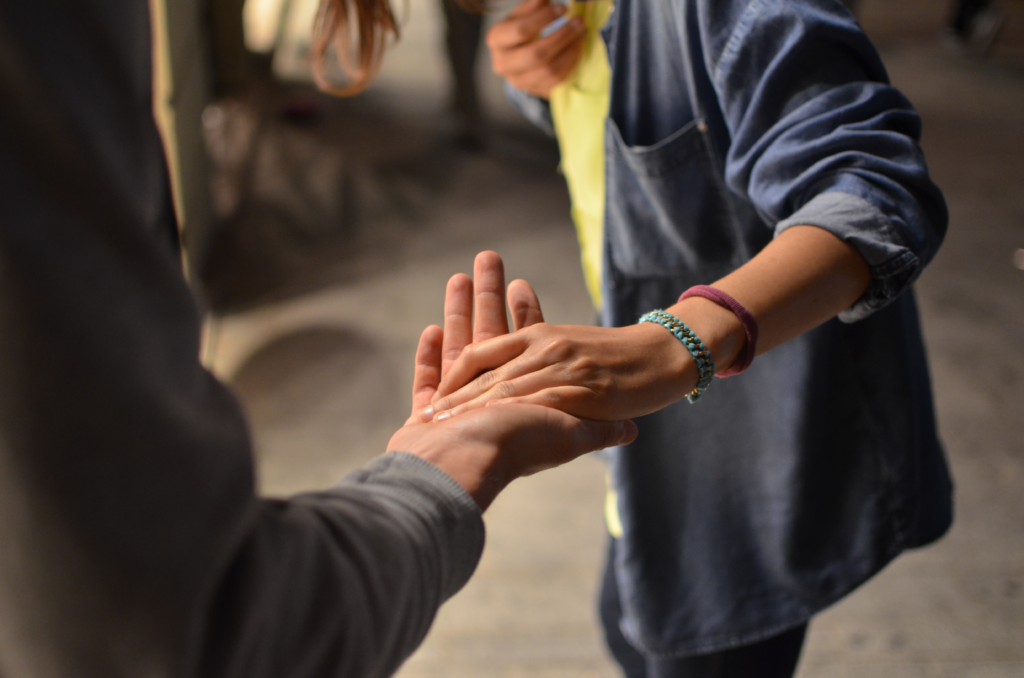Going corona loco


Separated from each other for months now, many teams at my work have adopted scrum-style ‘stand-ups’ to stay in touch. These are brief meetings in which everyone has a chance to tell what they have done, what they plan to do, and if there are any problems they need help with. Last week, that third question prompted a surprising answer from one colleague, ‘Keeping my sanity while living on my own’. Her response filled me with relief, even as the tears started pricking at the backs of my eyes. I wasn’t the only one who was holding craziness at bay.
While those on the corona front line battle heroically, the rest of us seem to be in a quiet back-water, part of a phoney war. In our house, we spend the weekdays either quietly working from home or helping the girls with schoolwork. As we are homebodies by nature, our weekends are pretty much as they always were, walks, bike rides and pottering at home with our various hobbies. Since the mindblowing chaos of simultaneous work and home-schooling was ended by the opportunity for our girls to spend three days a week at daycare, we can’t complain about being overworked, and our daughters get to play with other children and be out from under Mum and Dad’s thumb regularly.

Yet, despite our privileged position, the whole family is showing signs of mental stress. ‘Muh-muuuhh-mummy’, my younger daughter came sobbing and howling up the staircase to our study. ‘She nearly k-killed me!’. Our girls have been getting on amazingly well, but every so often they erupt at each other in a frenzied, violent fury. They complain daily of various ailments, tummy aches, headaches, and generally ‘not feeling well’. The oldest picks at the skin on her fingers until they bleed, and I’ve lost the moral high ground necessary to chastise her, as I’m doing the same. My partner, who normally wakes up fresh and bright from a night of dreamless sleep, and has always put my regular nightmares down to ‘eating too much cheese’, now frequently reports threatening dreams.
For myself, I was astonished to find I have developed a nervous twitch under my eye. Every morning when I wake up, it takes less than a minute before the word ‘corona’ shoots through my mind, leaving me for the rest of the day with an anxious, unsettled feeling, an undefined pressure, a disturbing friction in the back of my head. Like thunder approaching, or the moments just before nausea hits. Some days it’s only a weight on the back of my neck, others it feels like my head will explode.
I felt really stupid and weak for being affected this way while we had so few problems. Yet now, here was someone who seemed to me to be in an even easier situation, who was having serious difficulties too. What was going on with us?
The main problem I face is that I spend all of my days either with my partner, or my children. As an introverted person, this constant lack of private space grates my nerves raw. It also keeps me trapped in two roles, the mother and the partner. As a mother I need to be caring, grown-up, patient, stay positive and brave, give a good example. As a partner I have more room to be myself. I can swear, laugh at black humour in films, talk about my worries and even have a bit of a cry. Even so, I still need to stay within the invisible lines every couple develops, the versions of ourselves that fit well together, the shared interests, the relationship dynamic that works for us. With an extrovert partner and two extrovert children, all with strong ideas of what they want, my days consist of a lot of listening and accommodation.
In my normal life, this is fine as it is limited to evenings and weekends. At work, I can bring forward another side of myself. While I don’t suddenly transform into a chatty extrovert, the fact that I have a lot of introverted colleagues naturally gives me more room to say what I want. My work is such that I have a lot of freedom to determine what I do each day, and as my colleagues also work independently, I have no need to do the sort of management tasks that my home time is filled with. I work in a wonderfully diverse and creative environment, so during lunch I can end up hearing about anything from a sabbatical in Asia to an endeavour to craft a jewelled dagger from a computer game in real life; from the best way to make your own peanut butter to a discussion of philosophy. Finally, I also have those precious moments when I am completely alone, on my daily bike ride to work over the heath, or for a longer period when travelling to conferences. Time when I am completely unlimited by other people’s expectations or previous experience of me, and I am free to be however I feel.

It was very clear to me – my introverted nature was making lockdown harder. So, I was gobsmacked – and more than slightly sceptical – to read articles that insisted the opposite, that introverts were ‘relishing the bliss’, or ‘happy at home with their quilting and sourdough’, while it was the extroverts that were suffering. It is a common misconception that introverts hate social contact. While I’m sure there are a few hermits who love to lock themselves completely away, by and large introverts value their relationships with others. They just prefer that contact to be in a different way. I hate crowded parties, being rung up unexpectedly, having people pop their heads around my office door constantly. But I cherish quiet conversations, one-to-one or with a small group of colleagues. At lunchtime, when fetching coffee or bumping into each other into the corridor. Or those serendipitous chats that spontaneously arise from a joke or a comment in the office. This sort of interaction is exactly what I need as an introvert. It isn’t forced on me when I’m concentrating, I’m not pushed into the spotlight, and the chance of social embarrassment or rejection is small. It’s also exactly the sort of interaction that has been totally removed by lockdown.
My placid disbelief of the extroverts’ claims to be the bigger victims was shattered when I started to hear of the problems faced by my own extrovert colleagues. People I admired for their bubbly personalities, their sense of humour, their easy-going way with everyone they met – and yet, just like introvert old me, they were talking about struggling to keep their sanity, about suffering migraines, depression. I began to understand how hard lockdown must be when your way of thinking things over is to talk them through with someone else, when your work style is to bounce ideas off others, when you keep your fires burning from the sparks of interaction with the people around you. And, while my family could often drive me up the wall, I began to grasp how very hard it must be for anyone, of any personality type, who is completely alone, without the touch of a hand, an arm around the shoulder, a warm embrace in the middle of the night.

Introvert, extrovert, enduring isolation alone or shut up with others – we are all suffering in our own way. Ultimately, the root cause is the same – we are no longer able to order our lives to suit our characters. We cannot be ourselves, cannot reach out for company or escape to solitude as the need takes us. Each of us has been unceremoniously elbowed out of the driver’s seat and demoted to passenger status, unable to steer our lives in our chosen direction anymore. This is what is truly threatening our sanity. Our control over our lives, our futures, our ability to express our identities, has been taken away from us. No one knows where the driver is going to take us next. No wonder that, despite appearing to be in a quiet, safe place, we are being pushed to the edge.
What can we do about this? The ultimate solution is beyond our reach. Each of us, depending on our personality and our home situation, can find our own small ways to alleviate the mental stress. But the vital first step is to recognise both that this stress exists, and that we are perfectly justified in experiencing it. It is not necessary to hide it or pretend it is unimportant – in fact, that is damaging to those around us, as it encourages them to do the same. I am immensely grateful to everyone who has the courage to show their own vulnerability, and in doing so, help the rest of us to better bear our own.